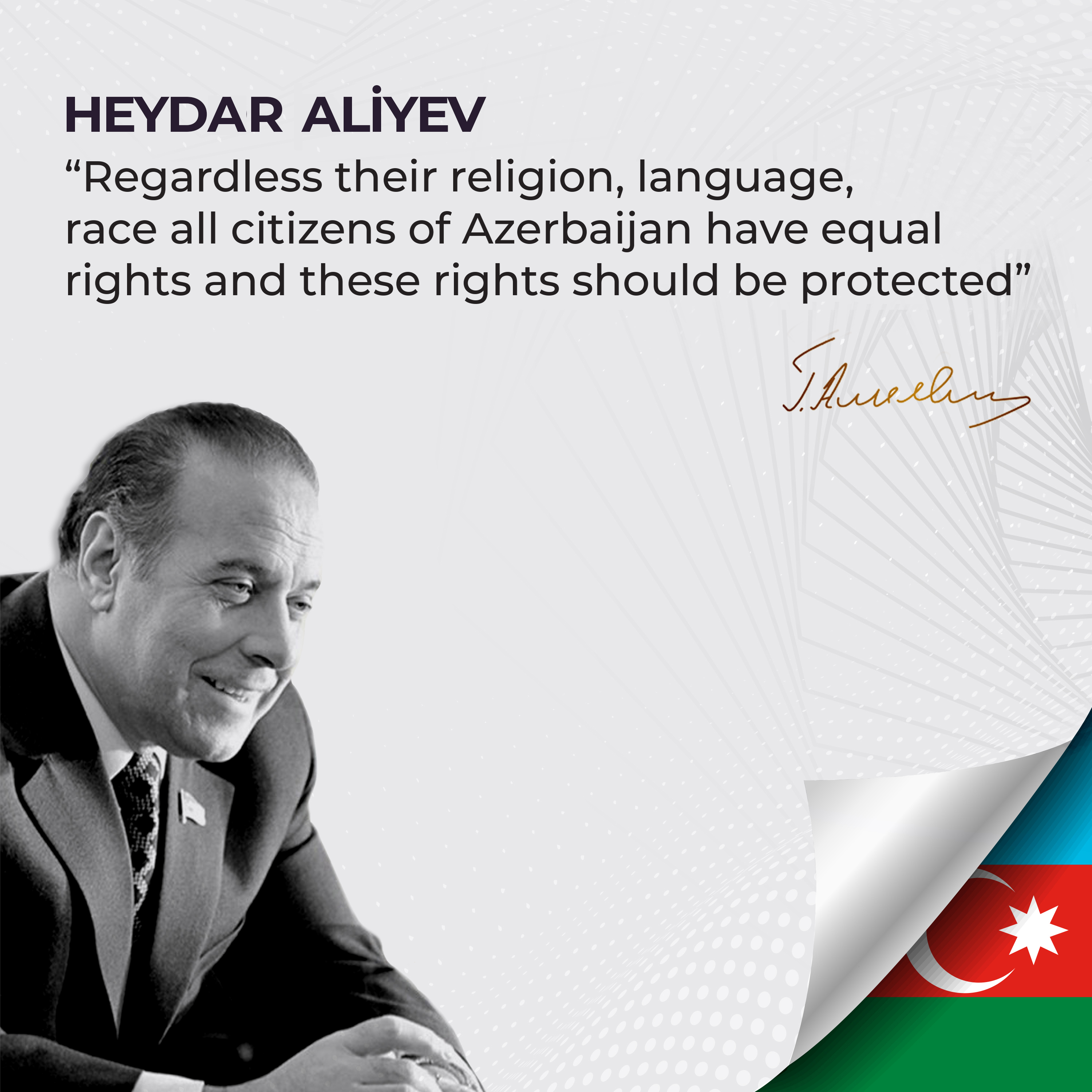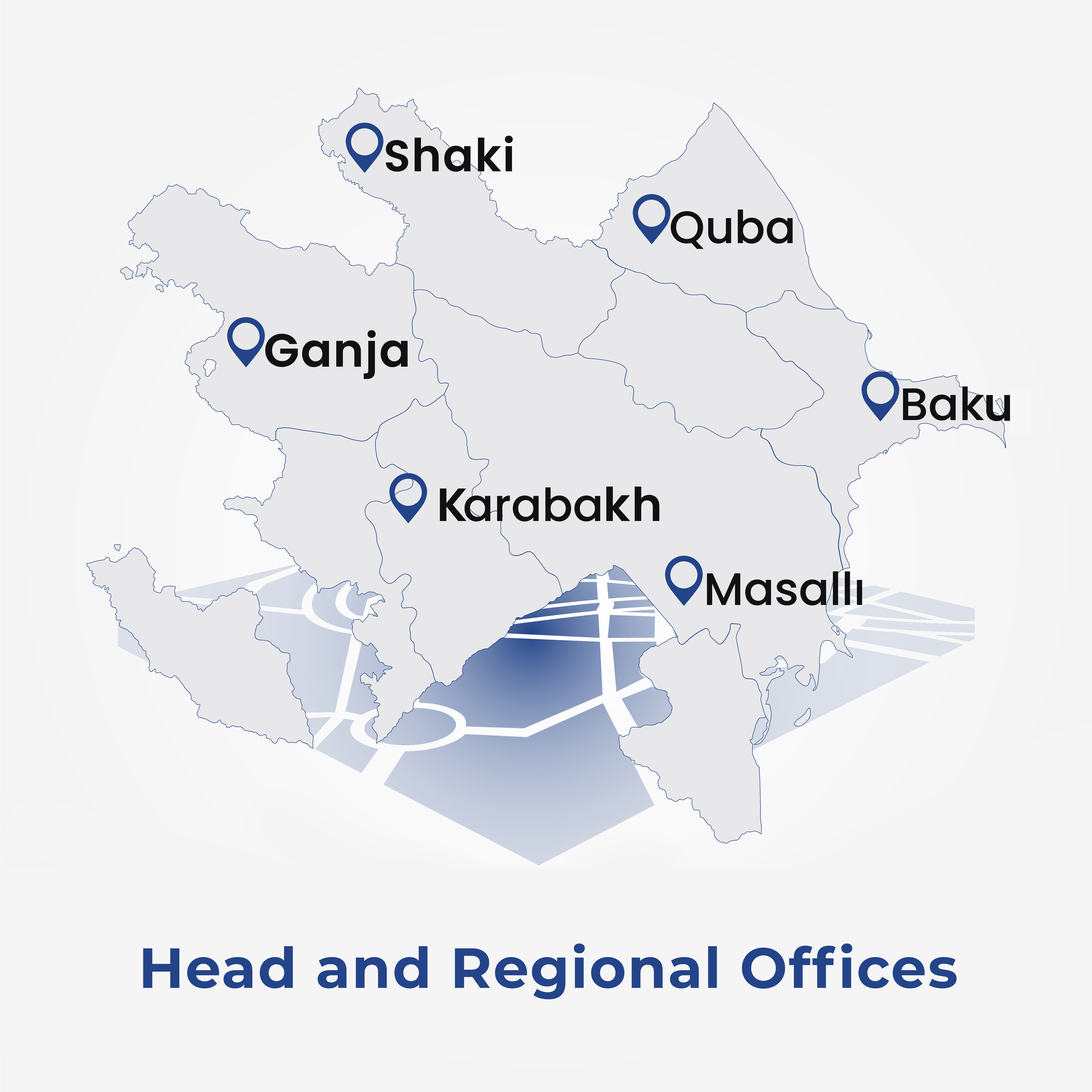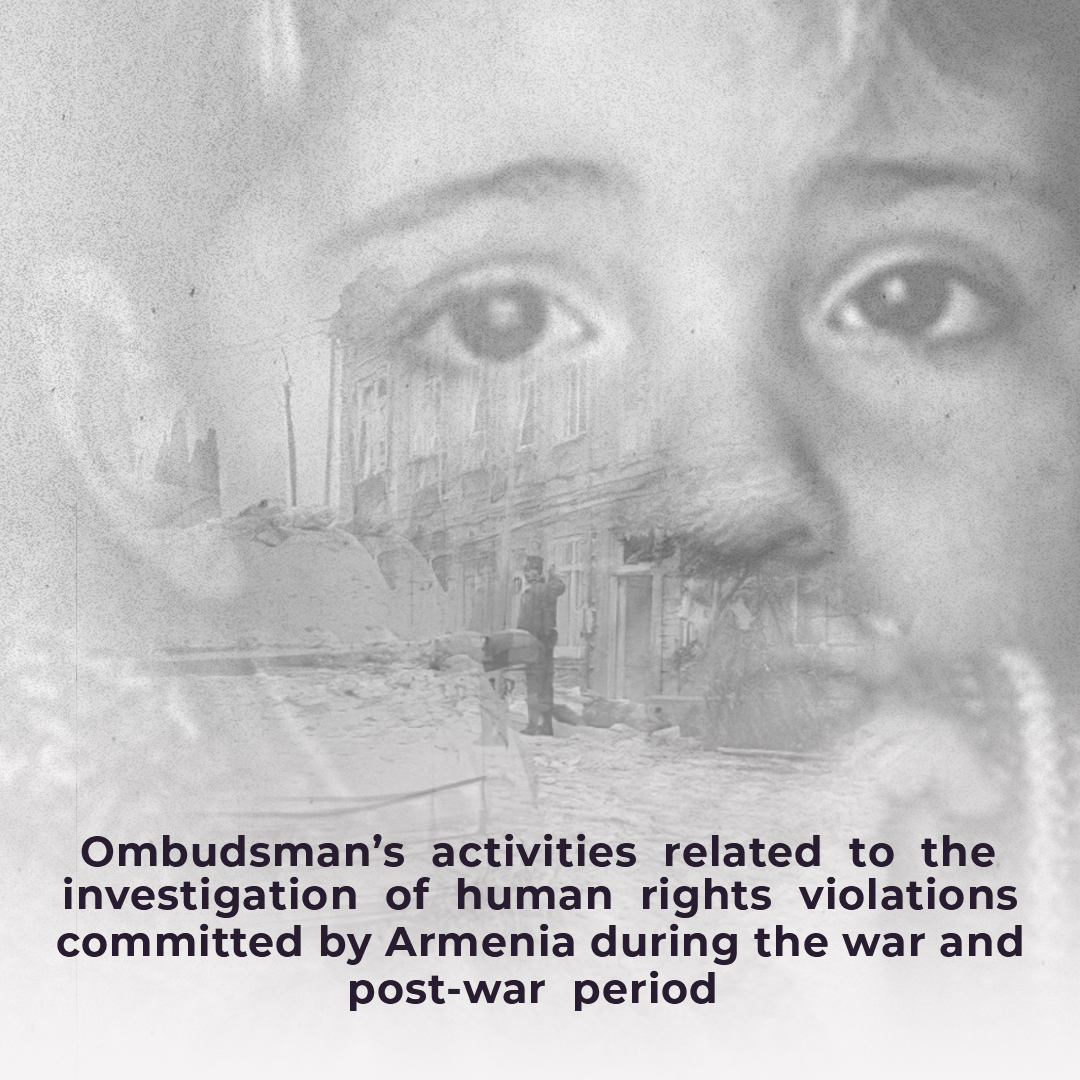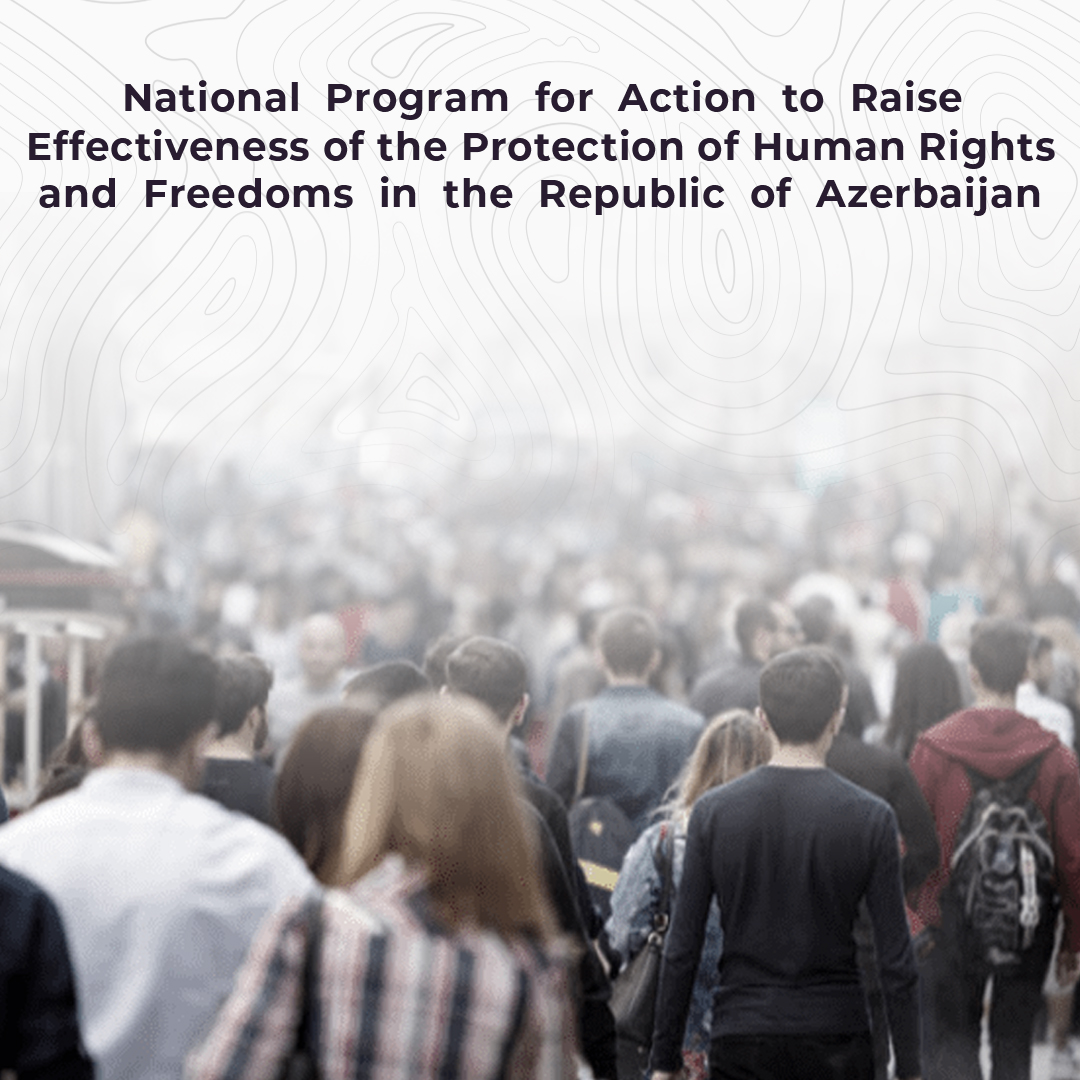
- Home page
- Commissioner
-
Activity Directions
- Mental Health and Human Rights
- Protection of the Rights of Population Groups
- Protection of the Right to Information
- Independent Monitoring Mechanism
- Legal Education
-
International Cooperation
- Cooperation with international organizations
- Cooperation with non-governmental organizations
- Study visits
- Projects
- Statements addressed to the international organizations
- “Ad hoc” reports
- Parallel and alternative reports submitted to the UN Treaty Bodies
- Oral and written statements submitted to the UN Human Rights Council
- Memorandums of cooperation
- Baku Declarations of Ombudspersons
- International Baku Forum
- Scientific Analytical Work
- Cooperation with Public and Civil Society Organizations
- Business and Human Rights
- National Preventive Mechanism Against Torture
- Protection of Human Rights
- Documents
- Media
- Live
- Contact
- Home page
- Commissioner
-
Activity Directions
- Mental Health and Human Rights
- Protection of the Rights of Population Groups
- Protection of the Right to Information
- Independent Monitoring Mechanism
- Legal Education
-
International Cooperation
- Cooperation with international organizations
- Cooperation with non-governmental organizations
- Study visits
- Projects
- Statements addressed to the international organizations
- “Ad hoc” reports
- Parallel and alternative reports submitted to the UN Treaty Bodies
- Oral and written statements submitted to the UN Human Rights Council
- Memorandums of cooperation
- Baku Declarations of Ombudspersons
- International Baku Forum
- Scientific Analytical Work
- Cooperation with Public and Civil Society Organizations
- Business and Human Rights
- National Preventive Mechanism Against Torture
- Protection of Human Rights
- Documents
- Media
- Live
- Contact
Call center
916
Meeting of the Committee on Migrant Workers International on Protection of the Rights of Migrants
On 13 September 2019, the Ministry of Labor and Social Protection of Azerbaijan hosted an international meeting of the UN Committee on the Protection of the Rights of All Migrant Workers and Members of Their Families, on the theme “Ways of Solving the Main Problems of Migrant Workers amid Global Crisis in the Changing World”. The meeting has brought together state bodies, international, non-governmental organizations, diplomatic missions and mass media.
At the opening ceremony, it was told about migration policy reforms and status of the protection of rights of migrants.
In her speech, the Commissioner noted that in last years, in some developed countries the number of cases of cruel, inhuman and open hatred treatment of migrants increased, in violation of the UN Resolutions and international law. Whereas, Azerbaijan according to its economic development, remained attractive due to its stability, tolerance and multicultural environment, although the country hosted over one million refugees and IDPs as a result of Armenia's ethnic cleansing policy, lasted for more than 30 years.
E. Suleymanova underlined that it is necessary for the States to protect comprehensively the migrants’ rights by applying flexible procedures, to provide social needs of family members, to ensure the principle of non-discrimination in education, health and while ensuring other rights from a single approach.
It was noted that Azerbaijan is one of the first States in the region that joined to International Convention on the Protection of the Rights of All Migrant Workers and Members of Their Families (ICRMW). The Government undertook a number of relevant reforms taking into account the obligations under the Convention as well as the related Committee’s recommendations. Consequently, the first Migration Code among the whole CIS was adopted; e-services have been developed by using new approaches; and international cooperation in this area has been extended. For example, the State acceded to the “Global Compact for Safe, Orderly and Regular Migration (GCM)” and “Global Compact on Refugees”.
Commissioner also stated that the Ombudsman Office was involved in the preparation of the third periodic State report on the implementation of the relevant Convention and actively participated in discussions. Furthermore, the Commissioner submitted her parallel report to the Committee.
Commissioner closely cooperates with competent state bodies, NGOs, and foreign ombudspersons to more effectively protect migrants’ rights as a vulnerable group of population and to strengthen the coordination among government agencies involved in migration management. Eventually, the status of protection of rights of migrants, their problems, needs and appeals are reviewed; the proposals are made to the competent bodies to advance the legislation on the outcomes, to improve the quality of the relevant database, and to bring the state policies in line with international documents, to which the State is a party.
The Commissioner also made proposals concerning the extention of the registration of foreigners at the place of residence, social protection of unaccompanied, deprived of parental care children and asylum seekers as well as to improve the legal status of aliens placed in special detention centers.
Regular measures are being undertaken in accordance with the NAP on raising effectiveness of human rights and freedoms in the Republic of Azerbaijan approved by the Presidential Order of 27 December, 2011, covering the places, which people cannot leave at their own will to harmonize the conditions and regime into line with international standards. The document envisages effective implementation of international obligations, enhancing treaty-based law data regulating protecting rights and improving legal status of Azerbaijani nationals living abroad.
The Ombudsman Office jointly with its Regional Offices, relevant government agencies, International Organization for Migration and other international organizations throughout the country, including Nakhchivan Autonomous Republic held awareness trainings. The issues related to recognition of migrants’ documents, health, violence, necessity of prevention of illegal labor and labor exploitation, labor market information systems, readmission and human rights. In addition, extensive awareness-raising work was carried out at the border checkpoints on the basis of specially prepared printed materials.
Capacity-building seminars are organized on a regular basis to further enhance the knowledge, skills and professional qualification of government agencies, working on asylum and migration issues. Such awareness events are held in secondary and higher education institutions as well.
Commissioner stated that the National Preventive Group members regularly monitor the Center for the Illegal Migrants and investigate detention conditions, quality of nutrition, medical care, and treatment. The detained migrants have been assited within the mandate of the Commissioner.
It was particularly noted that, the Commissioner regularly works with the citizens of Azerbaijan, who migrated, along with the migrants residing in the country. Therefore, the relations with the State Migration Service and foreign ombudsmen, as well as diplomatic missions in Azerbaijan and abroad is being developed.
As a consequence of these relations, the Azerbaijani citizens, living abroad have been assisted with legalizing their labor activities there; proposals were made to liberalize the migration rules and relevant regulations; illegal migrants were given more time for establishment of their status; each migrant is treated individually by taking into account the personal and family status; the universally recognized principle of "family reunification" and other international norms have been considered during relevant procedures; the procedure for issuance of return certificates to persons administratively expelled from the country becomes more flexible; cases of violations have been prevented during deportation or forced evictions. By the way, the comprehensive, consistent and systematic awareness-raising campaign to eliminate such cases is underway.
E. Suleymanova made several proposals on advancing the joint activity and stressed that it is necessary to take more joint measures in the country to raise awareness about the implementation mechanisms of the Committee recommendations. It was also stated the importance to implement those recommendations from the view of new approaches and to held joint discussions to assess the status of implementation. The Commissioner highlighted that it is important to take such measures by taking into account of various aspects of migration flow, the management processes, and peculiarities of the refugee and IDP problems at the national level.
To be noted that on the day of the abovementioned conference, the competent members of the Committee had a meeting with the Commissioner in the Ombudsman Office by visiting her office. The parties have discussed the activity in the field of ensuring and protecting migrants’ rights as vulnerable group of the population irrespective of their age, gender, health status and other characteristics.
- National preventive mechanism against torture
- Protection of the rights of population groups
- Protection of the rights of refugees, IDPs and migrants
- Protection of the rights of detainees and prisoners
- Protection of the rights of military servants
- Protection of women's rights and provision of gender equality
- Protection of child rights
- General
- Legal awareness
- Protection of the rights of older people
- Protection of the rights of persons with disabilities
- Cooperation with public and civil society
- National preventive mechanism against torture
- International cooperation
- Non-Governmental Organizations
- Public hearings
- Mass media
- Business and Human Rights
- Protection of the rights of martyrs' families and war veterans
- Protection of the rights of migrants
- Prevention of discrimination and ensuring equality
- Right to information
- Mental health
- .
-

- The Ombudsman participated in the International Conference on “Artificial Intelligence and Human Rights: Opportunities, Risks and Visions for a Better Future” in Qatar.
-

- The Ombudsman sent letter to UN High Commissioner for Refugees regarding protection of rights of persons deported from Armenia.
-

- A representative of the Ombudsman Office took part in an event organized by the Ministry of Energy.
-

- The Ombudsman’s representatives participated in the Pardon Decree Enforcement Ceremony.
-

- A series of legal awareness events were organized by the Ombudsman's Regional Centers.
-




